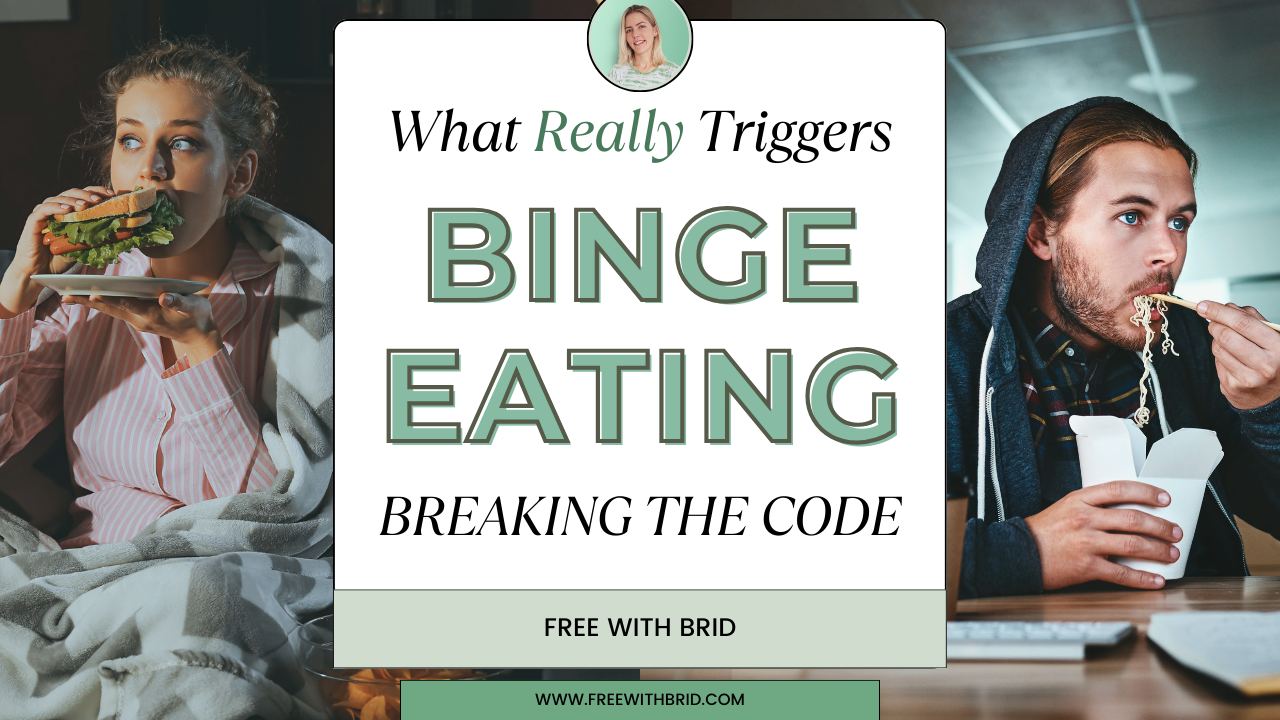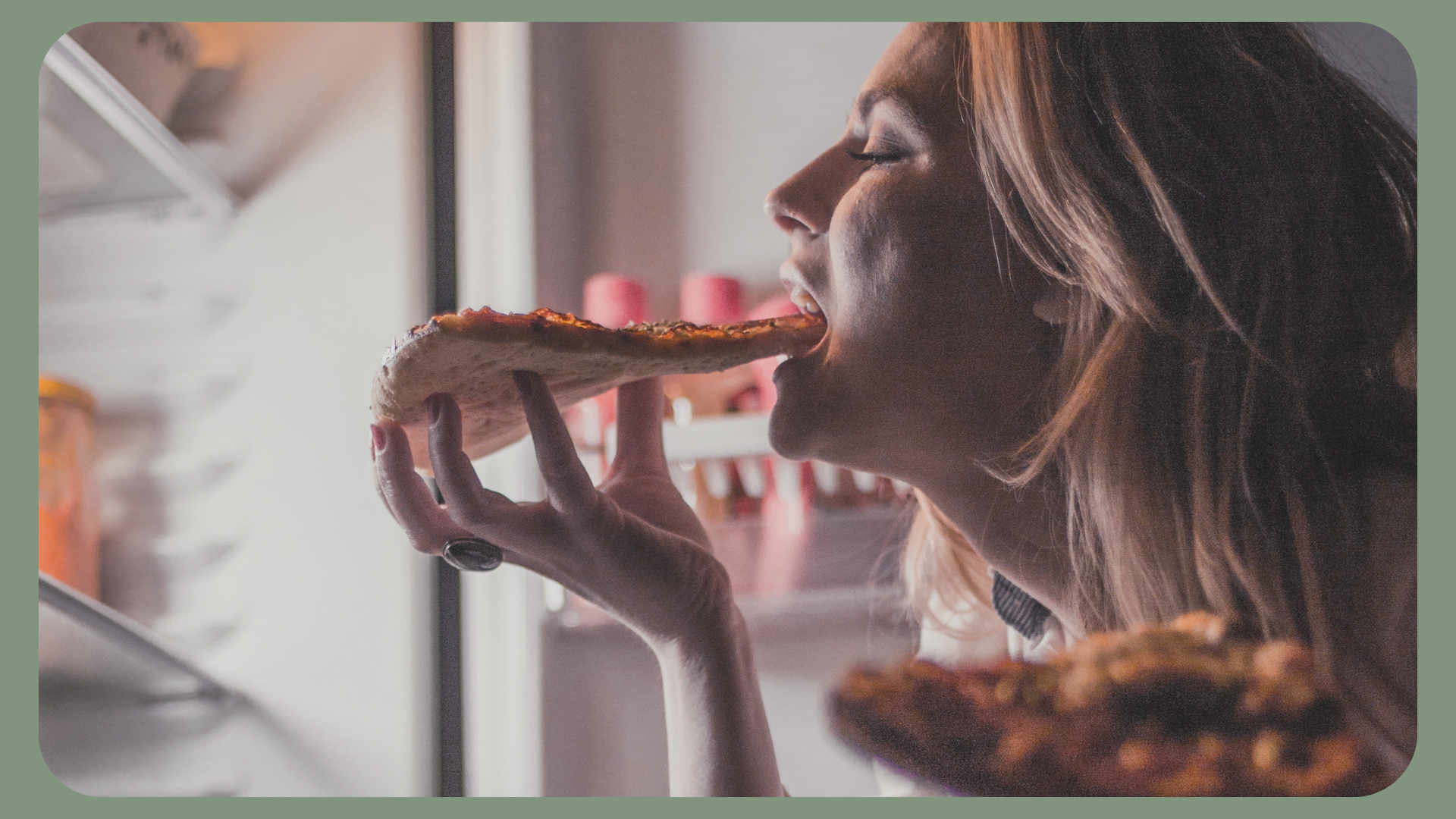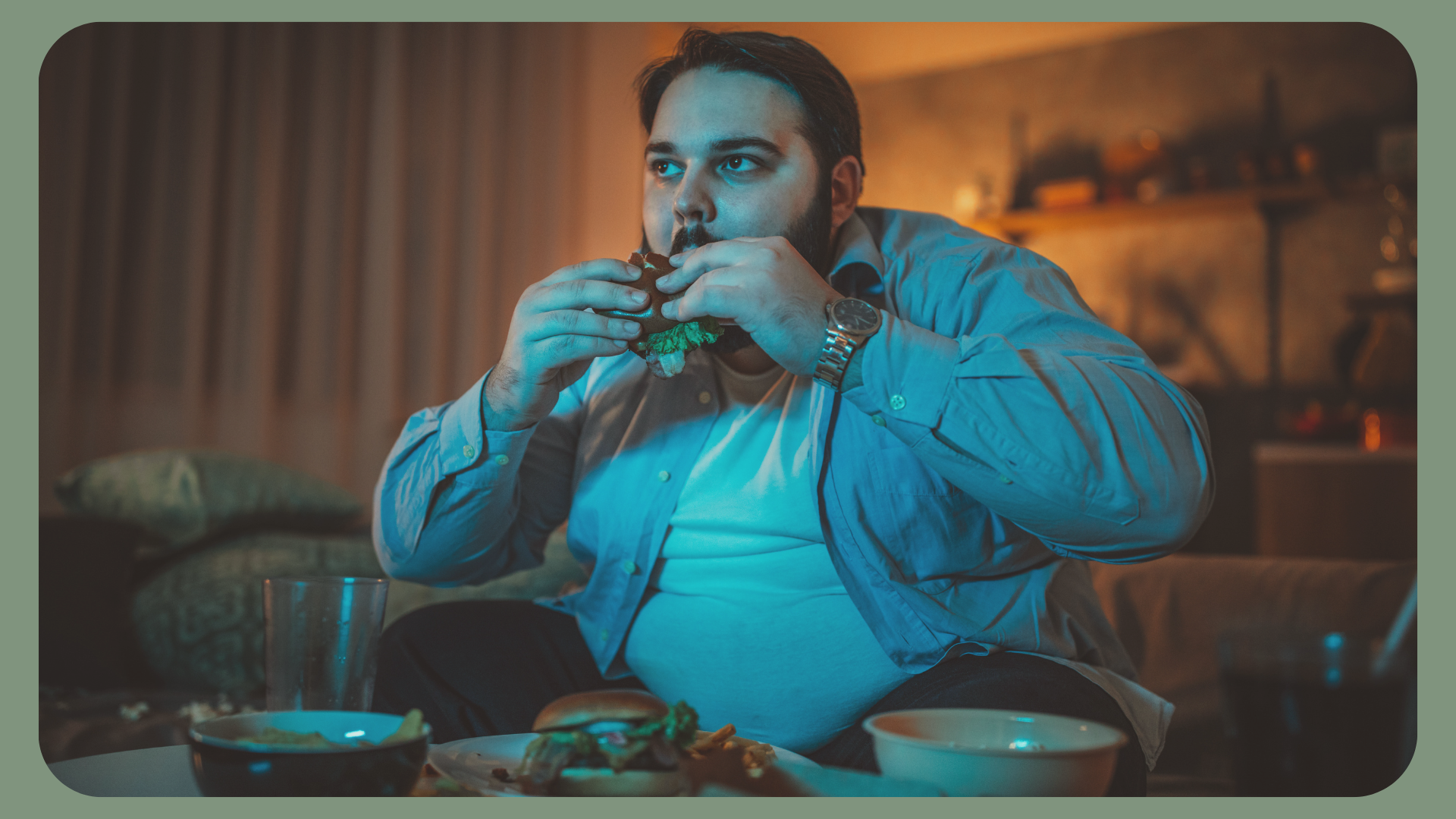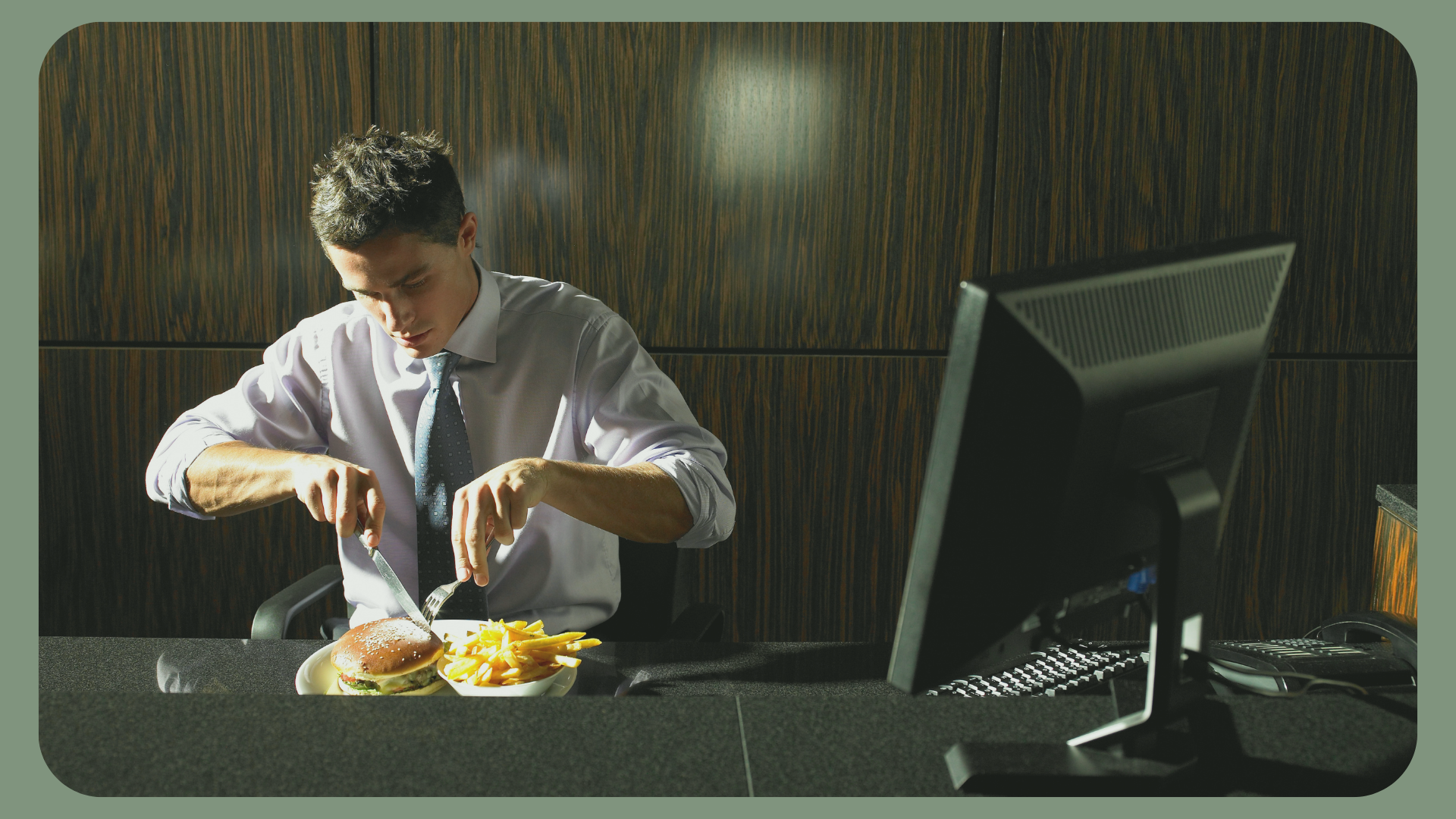Breaking the Secret Code: What REALLY Triggers Binge Eating?
Sep 04, 2023
Unlocking the Mind: Delve Into What TRIGGERS Binge Eating Discover the Hidden Factors that Fuel Overindulgence to Take Control of Your Relationship with Food!
Discover what triggers binge eating before learning how to regain control. Explore emotional, psychological, and environmental factors influencing overeating. By starting at the root cause, you can move your way up to learning how to overcome triggers and establish a healthy relationship with food. Find the TRIGGERS to break free from this cycle. Start your journey towards a healthier relationship with food!
Imagine sitting down with your favourite snacks after a long day, intending to have just a little taste, but suddenly you find yourself starting to feel out of control, consuming far more than you planned. This scenario might sound familiar, as many of us have experienced episodes of overeating at some point.
But for some individuals… This eating behaviour goes beyond occasional indulgence and becomes a recurring pattern known as binge eating.
Binge Eating Disorder is a complex condition that affects millions of individuals across the globe. Although it may seem like a simple act of indulging in excessive amounts of food, there is much more to it than meets the eye. In order to understand this destructive eating behaviour, it is crucial to delve deeper into the underlying triggers that lead to binge episodes or episodes of uncontrolled eating.
In this food freedom blog, we will explore what truly triggers binge eating, shedding light on the psychological and emotional factors that contribute to this disorder. By gaining a better understanding of what triggers a binge, that’s the only time we can move forward and take a step towards developing effective strategies for prevention and treatment.
So… what REALLY triggers binge eating? Let’s list them up for a clearer understanding!
- Emotional Distress: Many people turn to food as a way to cope with negative emotions such as stress, anxiety, depression, loneliness, or boredom. Binge emotional eating can provide a temporary distraction or comfort from these feelings.
Often, the negative emotions that drive binge emotional eating are not resolved by consuming food. Instead, excessive food intake can amplify feelings of guilt, shame, and self-disgust. These emotions can further perpetuate the cycle of emotional distress, leading to an unhealthy relationship with food and an increased risk of developing obesity and related health issues.
- Dieting and Restriction: Strict dieting, skipping meals on purpose or excessive food restriction can lead to intense cravings and a feeling of deprivation. This can eventually result in a loss of control around food, leading to binge eating, you can’t force your whole system to stop eating just because.
Skipping meals intentionally or excessively restricting food intake can disrupt the body's natural hunger and fullness cues. Over time, this can negatively impact metabolism, making it harder for the body to efficiently burn calories.
Additionally, constant hunger can cause irritability, fatigue, and difficulty concentrating, affecting overall productivity and mood.
Deprivation from certain foods can also lead to a preoccupation with them, creating an unhealthy fixation that can undermine one's overall well-being. Labelling foods as "good" or "bad" can intensify cravings and feelings of guilt or shame when indulging in forbidden treats.
- Negative Body Image: Poor body image and dissatisfaction with one's appearance can contribute to low self-esteem. Binge eating might be used as a way to escape these negative feelings or to cope with them.
It is important to recognize that negative body image can have manifold causes, influenced by a combination of cultural, societal, and personal factors. Mainstream media, for instance, often perpetuates unrealistic beauty standards, portraying an idealised and often unattainable image of beauty.
This unrelenting exposure to these unattainable standards can lead individuals to constantly compare themselves to these images, resulting in dissatisfaction and a negative perception of their own bodies.
- Hormonal and Neurotransmitter Imbalances: Some studies suggest that imbalances in certain hormones and neurotransmitters in the brain, such as serotonin and dopamine, could play a role in triggering binge eating.
Serotonin, often referred to as the "feel-good" neurotransmitter, plays a crucial role in regulating mood, appetite, and impulse control. Research has shown that individuals with binge eating disorder may have lower levels of serotonin, which may impair their ability to regulate their food intake appropriately.
This deficiency in serotonin has been found to contribute to increased cravings for high-calorie, comfort foods, and difficulty in feeling satiated after meals, ultimately leading to episodes of compulsive overeating.
Similarly, dopamine, known as the "reward neurotransmitter," plays a significant role in the brain's pleasure and reward circuitry. It is involved in reinforcing pleasurable behaviours, such as eating, and triggering sensations of satisfaction and reward.
Studies have suggested that individuals with binge eating disorder may have dysregulation in the dopamine system, leading to a heightened sensitivity to food-related rewards. This, in turn, fuels the cycle of binge eating, as the brain becomes increasingly motivated to seek out and consume large quantities of food to experience the same level of pleasure.
- Genetics: There might be a genetic predisposition to binge eating and related eating disorders. Family history can influence the likelihood of developing binge eating behaviours.
The genetic basis of binge eating disorders is complex and involves the interaction of multiple genes and environmental factors. Certain genetic variations, such as those affecting appetite regulation, reward pathways, and overall impulse control, have been identified as potential contributors to the development of binge eating behaviours.
One such genetic variation is the melanocortin 4 receptor (MC4R) gene, which plays a role in regulating appetite and energy balance. Mutations in this gene have been associated with an increased susceptibility to obesity and binge eating.
Additionally, genes involved in serotonin metabolism, such as the serotonin transporter gene (SLC6A4), have also been implicated in binge eating behaviours.
- Stressful Life Events: Traumatic experiences, major life changes, or challenging events can trigger emotional turmoil, which might contribute to binge eating as a coping mechanism.
Major life changes such as divorce, relocation, losing a job, or the death of a loved one, can create immense stress and upheaval in our lives. Adjusting to these changes can be an arduous process, and some individuals turn to binge eating as a way to numb their pain or fill a void created by the loss and uncertainty.
This maladaptive coping mechanism may provide a momentary distraction or a soothing sensation, providing a temporary escape from the emotional distress caused by these life-altering events.
Similarly, challenging events such as financial hardships, academic pressure, or relationship conflicts, can also contribute to the onset of binge eating. The overwhelming pressure and strain these events exert on an individual can lead to feelings of helplessness, anxiety, and depression.
In an attempt to cope with these negative emotions and regain a sense of control, some individuals turn to binge eating as a way to find solace or regain a sense of comfort.
- Social and Environmental Factors: Social pressures, such as peer pressure or societal emphasis on body image, can contribute to feelings of inadequacy and trigger binge eating. Additionally, environments with easy access to high-calorie, palatable foods can encourage overeating.
Peer pressure, particularly among adolescents and young adults, can have a profound impact on one's self-esteem and body image. In a society that places a high value on thinness and physical appearance, individuals may feel immense pressure to conform to certain standards.
This constant pressure can lead to feelings of inadequacy and a desire to achieve the idealised body shape, often resulting in extreme dieting or restrictive eating patterns.
In addition to the social factors, the environment in which individuals live and work can greatly influence their eating habits. In many societies, particularly urban areas, the availability and accessibility of unhealthy food options are vast.
Fast food restaurants, convenience stores, and highly processed snacks are often cheaper and more readily available than fresh, nutritious foods. This obesogenic environment, combined with the constant exposure to food advertisements and marketing tactics, makes it challenging for individuals to make healthy choices and resist the temptation of indulging in binge eating.
- Lack of Coping Skills: Some individuals might lack healthy coping mechanisms to deal with stress and emotions, leading them to resort to binge eating as a way to manage their feelings.
Coping mechanisms are strategies or behaviours that individuals adopt to handle the demands of life and the emotions that arise from various situations. They can be either positive or negative, healthy or unhealthy.
Unfortunately, some individuals may lack the ability to cope with stress and emotions in a healthy manner. This deficiency puts them at a higher risk of engaging in behaviours such as binge eating as a means to manage their feelings.
One reason for the lack of coping skills could be a lack of exposure or proper education on effective strategies to manage stress and emotions. Without the necessary tools and knowledge, individuals may turn to unhealthy methods, including excessive eating, to cope with life's challenges.
Additionally, early life experiences, such as childhood trauma or a dysfunctional family environment, can contribute to the development of inadequate coping mechanisms.
- Perfectionism: Striving for perfection in various aspects of life, including eating habits, can lead to heightened anxiety. Binge eating might occur as a way to cope with the fear of not meeting these unrealistic standards.
Perfectionists often set extremely high standards for themselves, aiming to meet impossibly high expectations in all areas of their lives, including their food choices and eating patterns.
They believe that adhering strictly to a "perfect" diet will result in better health and overall well-being. However, this rigid mindset can become overwhelming and fuel feelings of anxiety and stress.
The cycle of perfectionism and binge eating can create a vicious cycle that's difficult to break. The individual may feel intense guilt and shame after a binge episode, fueling their desire for even more control over their eating habits. They may then restrict their food intake to compensate for the perceived "failure," which often leads to more intense cravings and potential for another binge.
- Lack of Awareness: Sometimes, individuals might not be fully aware of their hunger and fullness cues, leading to overeating or binge eating without intending to do so.
One common reason for this lack of awareness is the fast-paced and busy lifestyle that many people lead. In the hustle and bustle of daily life, individuals may find it difficult to take the time to truly tune in to their body's signals. They may be so focused on meeting deadlines, attending appointments, or taking care of others that they overlook their own needs for nourishment.
Another factor that contributes to this issue is the prevalence of external cues that influence our eating behaviours. In today's society, food is everywhere. It is advertised on television, displayed in stores, and readily available at social events.
These constant reminders and temptations can cause individuals to eat based on external cues rather than internal cues of hunger and fullness.
That’s it!
As a recap… binge eating involves consuming large amounts of food in a short period, accompanied by a sense of feeling out of control. Contrary to common misconceptions among people who binge, binge eating isn't solely about a lack of willpower or self-control.
As a matter of fact… it is being TOO CONTROLLING of an individual, the desperation to achieve something quickly or not being gentle with the body. It's a complex behaviour influenced by various factors, including environmental influences, mental health, and emotional well-being.
In conclusion, understanding the underlying triggers behind binge eating is crucial for anyone seeking to overcome this detrimental behaviour. We have explored various factors, such as emotional distress, restriction mentality, and societal pressure.
By acknowledging these triggers, individuals can take the necessary steps towards reclaiming their relationship with food and achieving a healthier lifestyle.
However, it is not enough to simply acknowledge the problem; action must be taken. That is why I highly recommend enrolling in the 30 Day Reboot, which provides a comprehensive approach to breaking free from binge eating habits. With the right guidance, support, and dedication, achieving a balanced and nourishing relationship with food is within reach.
Don't let binge eating control your life any longer - take the first step towards a healthier future today.
In this moment of reflection, if you recognize the presence of BED within you, or you know some people with Binge Eating Disorder and have walked paths that seemed to lead nowhere, I urge you to consider embarking on a new journey.
Take a step towards transformation by immersing yourself in the enlightening experience of our FREE MASTERCLASS on "How to STOP Overeating Out of Habit." Embrace this opportunity to mend the bond between you and food, as well as the relationship with your own self.
The road may seem daunting, but remember, you're not walking it alone. Reach out for the support that's waiting, uncover invaluable coping mechanisms, and understand that countless others share this expedition with you.
Amidst the struggle, please understand that your worth is immeasurable, your strength boundless. You possess the capacity to conquer the tempest of binge eating triggers.
Each day is an invitation to seize the reins of your journey, steering it towards a healthier, more jubilant existence. Believe in your capabilities, for they are your guiding stars, illuminating the path towards self-discovery and healing.
It's a journey that requires patience, but know that you are deserving of the effort. With each step taken, be kind to yourself, embracing the essence of self-compassion. In the symphony of challenges and triumphs, remember that your determination is your beacon of hope, consistently propelling you forward.
Have courage, because you're on the brink of transforming your life. There's resilience and joy waiting for you. Keep in mind that you're NOT alone, and let hope light your way through tough times.
You're stronger than you think, and your potential is limitless. Stay focused, keep an open heart, and move forward with confidence. You have the power to overcome this challenge. Believe in yourself and take pride in your journey.
As we conclude this exploration of the complex and unique journey with food and self, always remember that acknowledging the challenges you face is the initial stride towards transforming your relationship with eating. The path ahead may appear intricate, but with the guidance of experts and the application of effective techniques, you're well-equipped to conquer binge eating.
Practising patience and self-compassion is crucial as you navigate this path of growth. Just as we've navigated the twists and turns of this discussion, you can navigate your way towards healing and self-discovery.
The curtain falls on this chapter, but your story continues. Together, let's unveil the authentic you and embark on a fulfilling journey toward nourishment and well-being!
If you want to connect with me, check out my social media and website:
Instagram - @freewithbrid
Website - www.freewithbrid.com
or WORK WITH ME! 💚
All love from your Binge-Eating Coach, BRID.
Start your food and body healing journey with the FREE masterclass
"Why You're Still Binge-Eating & How To Stop"
















